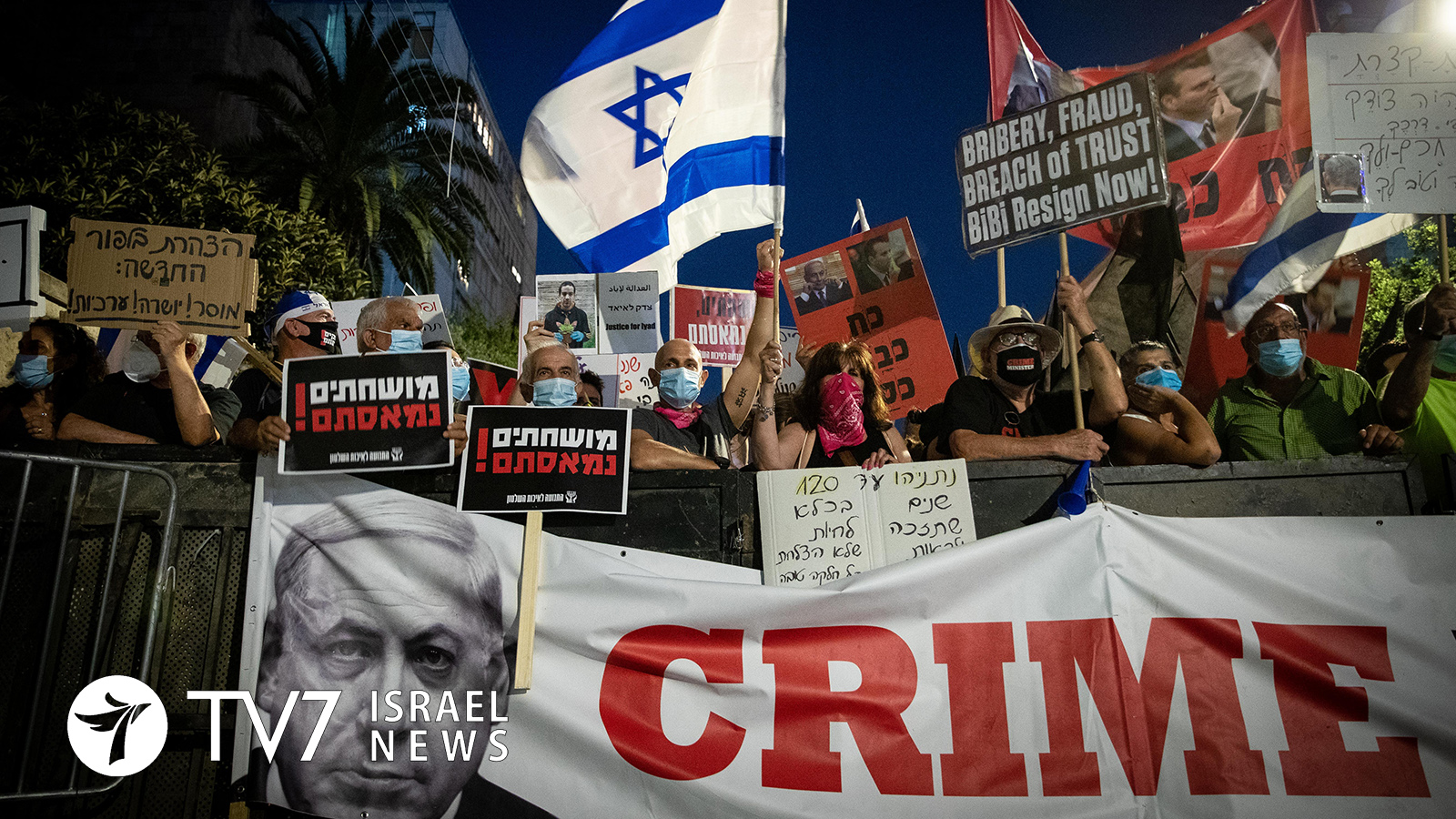Jerusalem is dealing with mounting public anger over government enacted restrictions that consequently devastates the economy. While Israeli authorities are struggling to combat the spread of the coronavirus, economic consequences of government-enacted restrictions have drastically raised the unemployment rate to 21.2% representative of 862,438 jobless individuals out of the total population of 9.2 million.
The Israeli government, under the leadership of Prime Minister Benjamin Netanyahu, initially received praise over the handling of the so-called first wave of the pandemic. A resurgence of the contagion is now evidently spreading uncontrollably, with an exponential rise ranking Israel the fifth worst-stricken among developed countries.
According to the latest data from the Ministry of Health, 70,582 Israelis have contracted the disease since mid-March; 43,813 of whom have completely recovered. 319 patients are currently diagnosed in critical condition, with 100 on ventilator support. The COVID-19 fatality rate in Israel is 509, which a study published this week by the John Hopkins Coronavirus Resource Center found is among the lowest worldwide at 0.7%.
As part of a new government instruction a partial weekend lockdown has been enacted throughout country. The restrictions were predominantly imposed on commerce and will remain in effect until Sunday morning.
The decision infuriated the Union of Stores and Malls, however; which declared venues that traditionally operate on Saturday will remain open. The Union cited a Health Ministry position deeming partial lockdowns as ineffective, and accused the government of deliberately exploiting the situation for the purpose of exercising religious coercion that is in no way related to attempts to curb the spread of the coronavirus.
Meanwhile, in an apparent attempt to alleviate public’s suffering, in what appears to be a liberal interpretation of the Keynesian theory for dealing with economic crisis, the Knesset approved a government-proposed grant to every Israeli citizen. The initiative will cost the state an estimated ₪ 6.5 billion shekels (equivalent to approximately € 1.6 billion Euros or $1.9 billion USD.
Prime Minister Benjamin Netanyahu pledged that the funds will be automatically deposited in citizens’ bank accounts by the beginning of next week. “This is another step that will make things easier for you and will move the wheels of our economy,” he vowed, adding that the government has “taken many such steps worth many billions: the safety nets for businesses and wage-earners, extending the eligibility period for unemployment compensation, the unpaid leave and more, and there will be more, because we must and can defeat the coronavirus together.”
Even though the government handout is not likely to be rejected, the general public appears unimpressed by the initiative. Thousands of Israelis have been flooding the streets of Jerusalem and Tel Aviv almost every other evening, to protest the government’s handling of the crisis. Demonstrator Hila Dekem told Reuters the public is “losing” by “sitting at home” and unable to earn wages. She went on allege that in contrast, the Premier – who is indicted on a series of corruption charges, is “someone who has stolen millions from us is again not going to jail, not facing charges. We need justice.” While expressing doubt that the government funds allotted to each citizen would cover Netanyahu’s expenses for even a single day, Dekem acknowledged that some Israelis may be swayed by the gesture.
“The level of distrust in the Prime Minister’s handling of the crisis is widespread,” commented Israel Democracy Institute President Yohanan Plesner. “Less than 30% percent of Israelis think the Prime Minister is handling the crisis properly. So the protesters – while it’s just dozens of thousands who are coming out almost very second day, which is a significant number but it’s far from a huge number of hundreds of thousands – they represent a sentiment that is deeply embedded in the hearts and minds of many Israelis; a sense of disappointment and alienation from the way the political system led by the Prime Minister is handling the current crisis,” he said.
Many of the demonstration have been marked by violence in scenes unprecedented on Israeli streets, including increased allegations of police brutality. In a published statement, Police Chief Moti Cohen emphasized that while law enforcement is committed to ensuring civil rights to freedoms of expression and protest, such activities will only be permitted within the boundaries of Israeli law.
“Most of the public protests according to law, and the police must preserve their rights. We will continue to operate in accordance with our situation assessment to allow protests to be held throughout the country. Regardless of the reason to protest or the identity of the protesters,” said the Israeli Chief, adding, “That said, we will not permit any kind of violence – the harming of protesters, civilians nor police officers. We will operate with resolve with the upmost severity of the law against anyone who disrupts the order.”
Cohen further appealed to the Israeli public to exercise tolerance of differing views. “I am resolved to grant all citizens their democratic rights within the boundaries of the law and emphasize that the police is not a political body. It is untainted by foreign considerations and works for the interests of the general public. During these stormy days, I appeal to the citizens of Israel personally: Honor the law; exercise patience toward opinions of others and together we will protect the state of Israel and its values,” he urged.
In spite of the numerous protests and public disturbances throughout the country, a domestic poll published by the Yisrael Hayom daily revealed that Prime Minister Netanyahu continues to hold a 33% approval rate. His primary political rival, Alternate Premier and Defense Minister Benny Gantz, garnered a favorability rating of just 11%.
